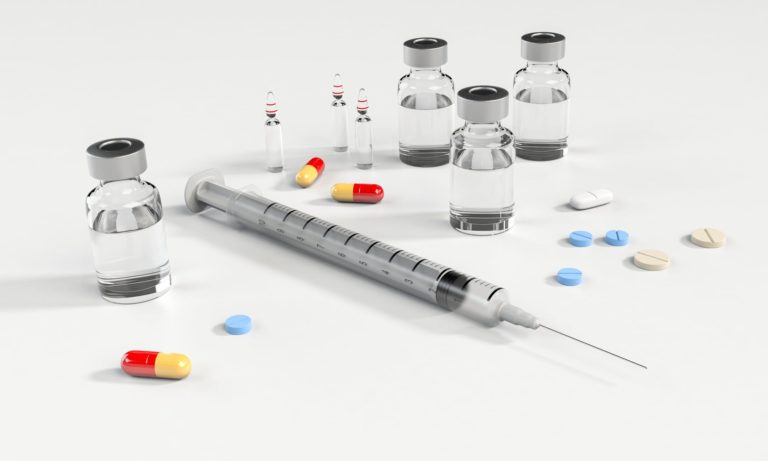Study Medicine in France
You want to be a doctor, but you don’t know how? Are you looking for information about this discipline?
This article is for you!
You must have 9 years of university education for general practitioners and 10 to 12 years for other specialists.
The DE (State Diploma) of Doctor of Medicine is required to practice medicine in France.
THE 1ST YEAR: THE PACES OR ITS ALTERNATIVES
The medical curriculum begins with the PACES (1st year common to health studies) or the alternatives set up in some universities. An average of 20% of students pass the competitive examination at the end of the course.
At the beginning of the 2019-2020 academic year, the numerus clausus in medicine (number of places open to the competitive examination set each year by the State) will be 9,314, an increasing figure to fight against medical desertification, although the modalities of access to health studies will change in September 2020.
The PACES and the numerus clausus will be abolished. The devices that will replace them are under development.
THE 2ND AND 3RD YEARS OF MEDICINE: THE BASICS OF MEDICINE
In 2nd and 3rd years, the program includes semiology, physiology, anatomy, microbiology, etc. The first notions of pathology, pharmacology, or bacteriology appear. Also, there are optional courses: philosophy of science, medical English, history of medicine, or medical informatics. The 3rd year is more clinical and focuses more on medical sciences, such as immunology.
Practice begins with a 4-week full-time nursing internship. Then, over the 2 years, a minimum of 12 weeks of hospital internship is planned. They occur in general or specialized wards, for example, in dermatology, intensive care, cardiology, etc.
At the end of the 3rd year, students obtain the DFGSM (diplôme de formation générale en sciences médicales/General education diploma in medical sciences), recognized at bachelor’s level.
THE 4TH, 5TH AND 6TH YEARS OF MEDICINE: THE CLERKSHIP
The 3 years of clerkship allow you to acquire complete medical training. They focus on pathologies, their treatment, and prevention. On the program: geriatrics, musculoskeletal system, neurology, cancerology, pediatrics, etc. The courses are often organized by thematic modules, generally in connection with internships, for example, cardiology/pneumology/resuscitation. Also, there are cross-cutting seminars, such as addictology.
Clinical practice is taking up more and more time. The outpatients are both students and employees of the hospital and receive a variable remuneration according to the course’s progress. Some internships are mandatory (e.g., emergency medicine, hospital surgery, etc.); others are done by choice. A total of 25 on-call shifts must be completed over the 3-year period and take place mainly in the emergency room.
At the end of the 6th year, for 2 days, medical students take the ECNi (computerized national grading tests). Everyone has a place, but their ranking determines the choice of specialty and location of the practice. The best ranked chooses first.
At the end of the 6th year, students obtain the DFASM (diplôme de formation approfondie en sciences médicales/Diploma of deep knowledge in medical sciences), recognized at the master’s level.
THE INTERNSHIP: TOWARDS A MEDICAL SPECIALTY
The internship lasts 3 years to become a general practitioner and from 4 to 6 years for other specialties. In total, there are 44 specialties:
- 13 of them are dedicated to the surgical discipline (urology, vascular surgery, gynecology-obstetrics, etc.) ;
- 30 others are in the medical discipline (psychiatry, pneumology, radiology, and medical imaging, etc.) ;
- medical biology is the only specialty of the biological discipline.
Depending on the specialties, the number of places open each year varies greatly: pediatric surgery (23 places in 2018-2019), geriatrics (199 places), general medicine (3,268 places), etc.
The medical internship is organized in three phases: foundation, deepening, consolidation. Interns do half-yearly internships (at least 6) and at the same time retain some theoretical knowledge. As members of the medical team, they acquire a degree of autonomy that increases with experience, but they always remain responsible for the practitioners who train them. Also, they prepare a thesis.
After having validated internships, teaching, and dissertations, interns obtain the DE (Diploma of Doctor of Medicine) and the DES (Diploma of Specialized Studies) for their following discipline.
Acceptance rates for the most selective French medical schools in 2014:
- University of Montpellier 1 (8.9%)
- Université La Réunion (9.1%)
- University of Toulouse 3 (9.3%)
- Aix-Marseille University (10.3%)
- Nice University (11.1%)
- University of Grenoble 1 (11.2%)
- Université Antilles-Guyane (11.3%)
- University Lyon 1 (12.2%)
- University of Paris 13 (12.3%)
- University of Strasbourg (12.4%)
- Limoge University (12.6%)
- Saint-Etienne University (13%)
- University of Paris 12 (13.2%)
- University of Paris 11 (13.2%)
- University Versailles Saint-Quentin-en-Yvelines (13.4%)
National average: 13.4%.
- University of Paris 6 (13.5%)
- Lorraine University (13.7%)
- University Bordeaux 2 (14%)
- University Clermont Ferrand 1 (14.2%)
- University of Rouen (14.2%)
- University of Paris 5 (14.3%)
- Amiens University (14.6%)
- University of Rennes 1 (14.7%)
- Besançon University (15%)
- Dijon University (15.3%)
- University of Paris 7 (15.3%)
- University of Lille 2 (15.4%)
- Tours University (15.5%)
- University of Angers (15.5%)
- University of Reims (16.3%)
- University of Nantes (16.3%)
- University of Corsica (16.9%)
- University of Poitiers (17.8%)
- Caen University (17.9%)
- Brest University (18.3%)
Sources:
https://www.orientation-education.com/article/classement-des-facultes-de-medecine-francaises-les-plus-selectives
https://www.univ-paris-diderot.fr
http://ufrsante.unicaen.fr
https://www.univ-brest.fr
http://www.onisep.fr/Choisir-mes-etudes/Apres-le-bac/Principaux-domaines-d-etudes/Les-etudes-medicales/Les-etudes-de-medecine



